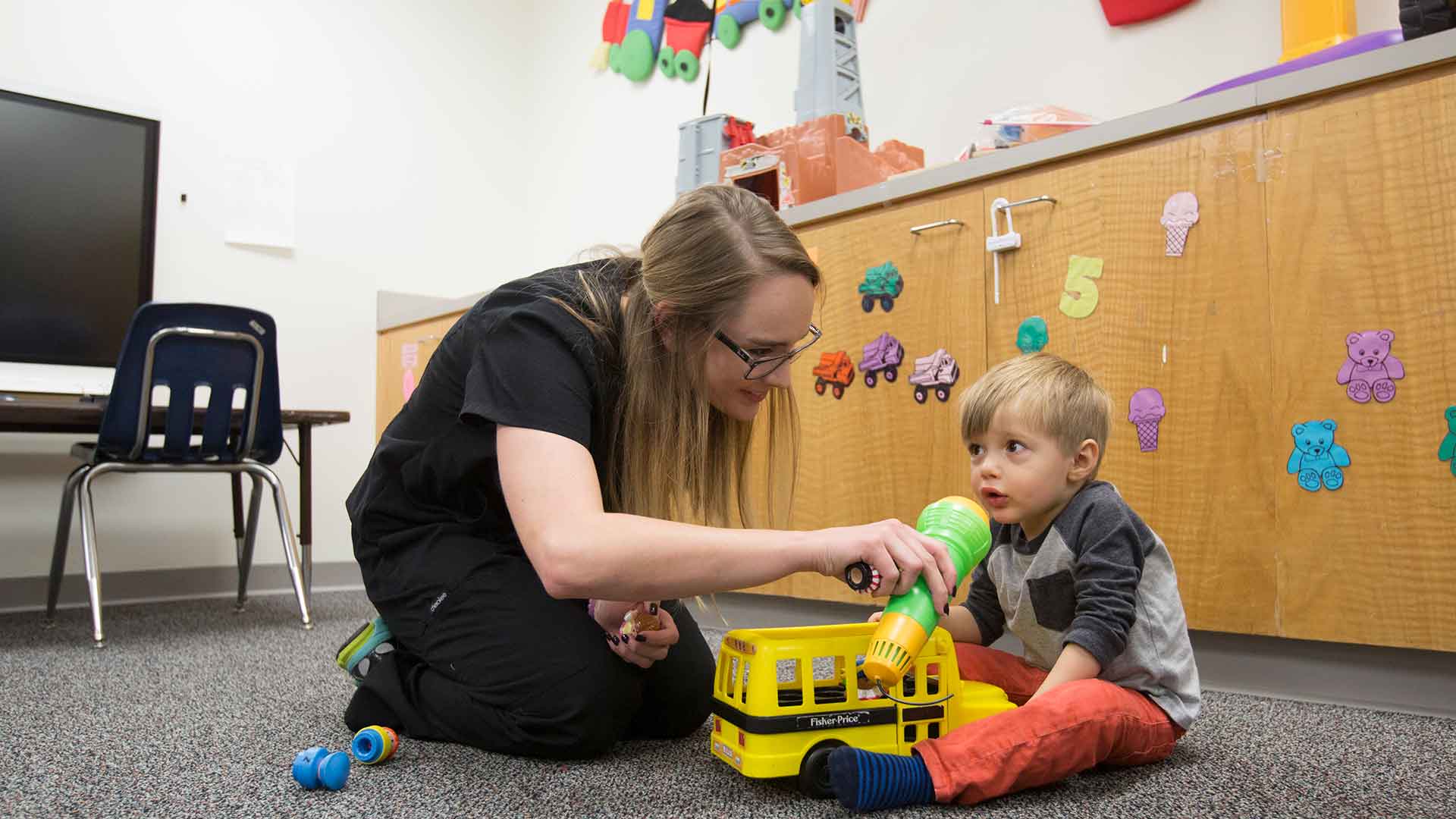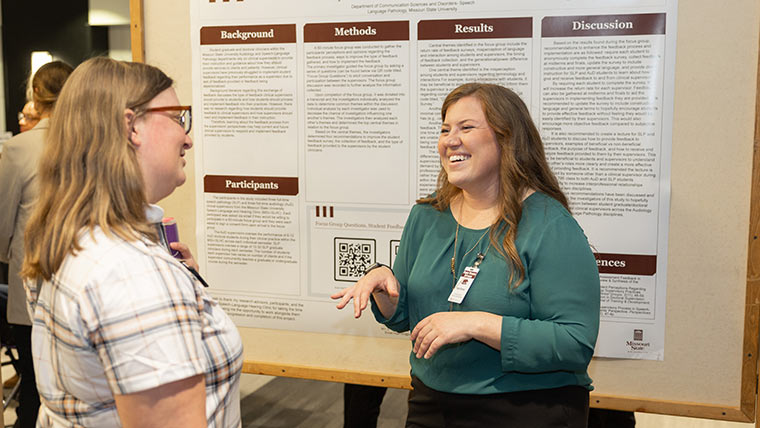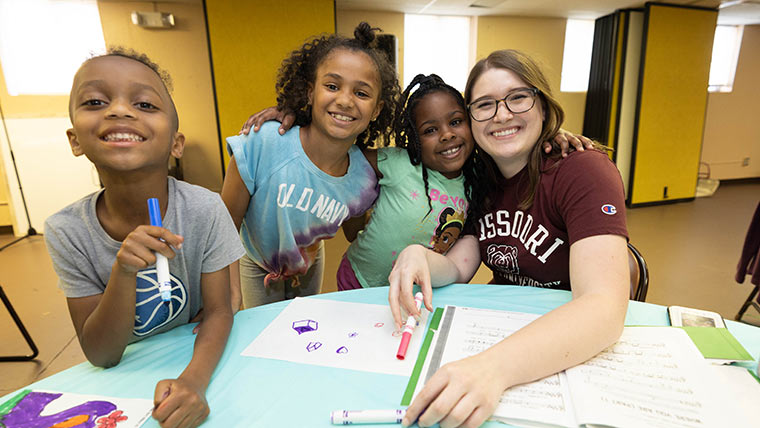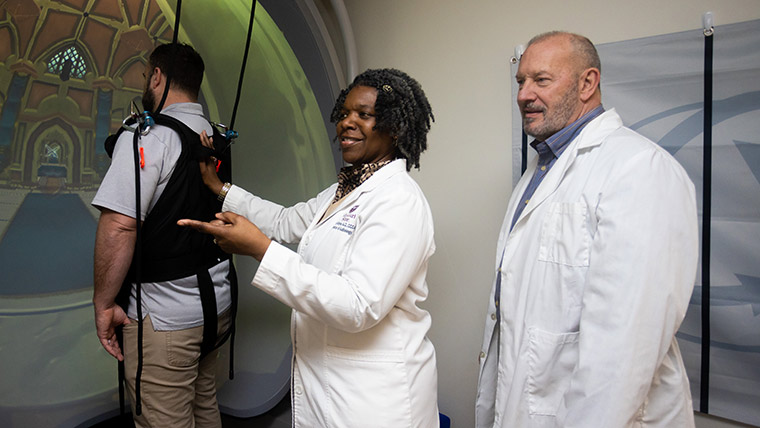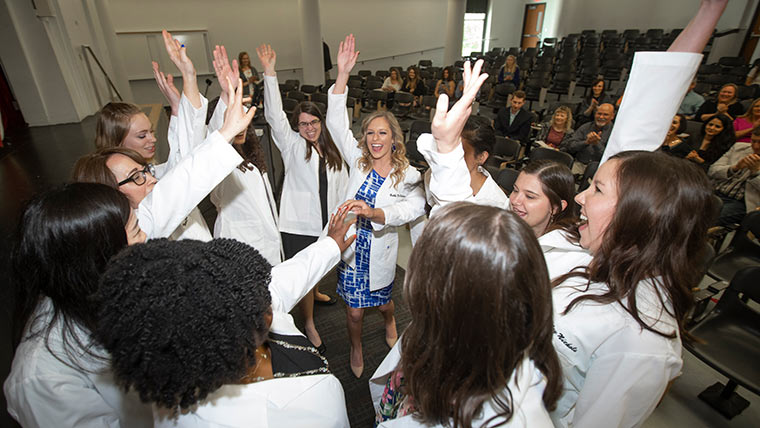Why major in communication sciences and disorders (CSD) at Missouri State?
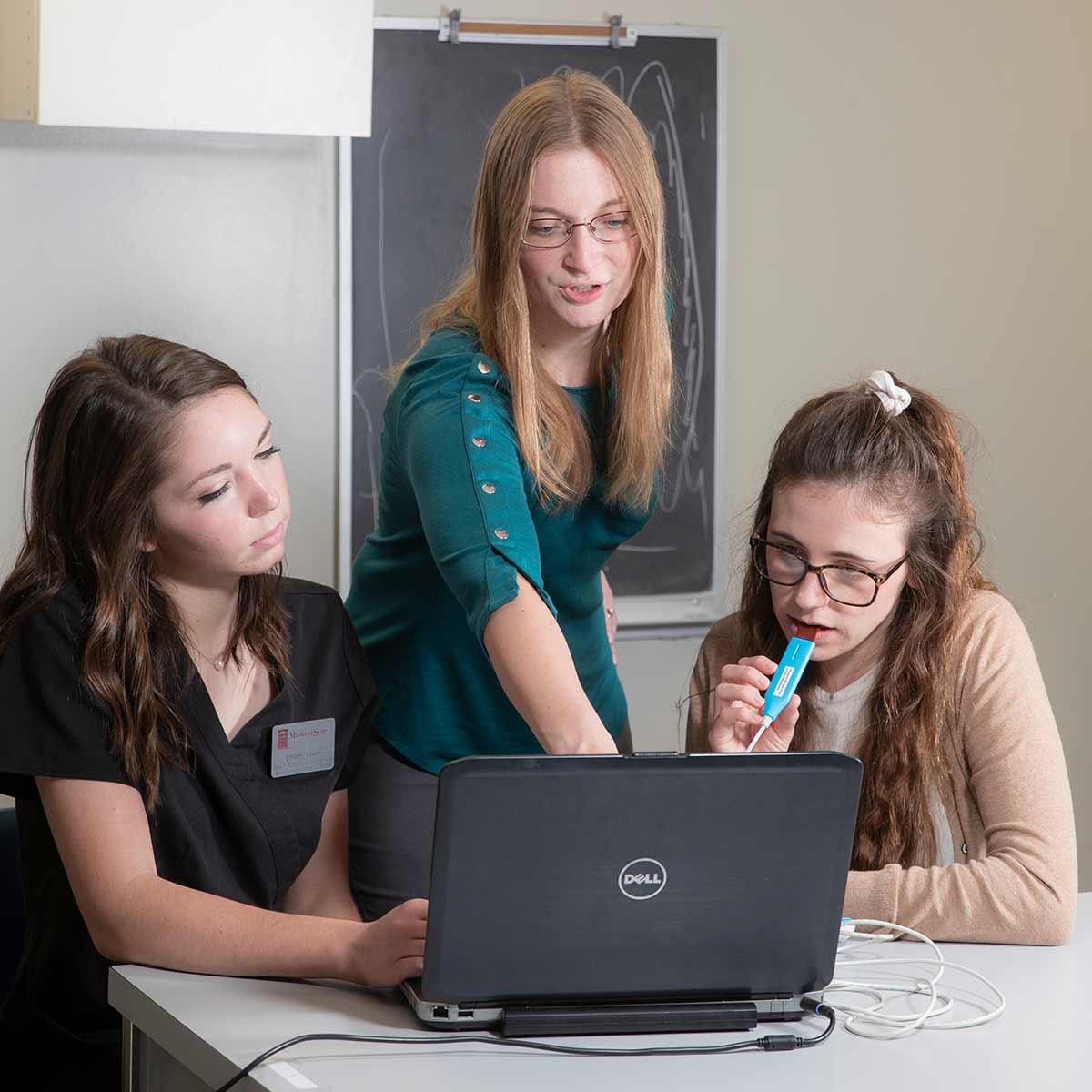
- Be primed for graduate school – To become a licensed speech-language pathologist (SLP) or audiologist (AuD), you’ll need to earn a graduate degree, too. This major gets you ready.
- Enjoy quality, affordability – MSU has reasonable tuition rates.
- Start your career after you graduate – If you don't want to pursue graduate school, you can still work in supporting roles at nursing homes, clinics and more.
- Learn from the pros – The people who teach you are all clinicians in speech-language pathology or audiology.
Track options: Specialize your CSD degree
How do you want to make a difference in communication sciences and disorders? Choose the track that matches your goals and interests.
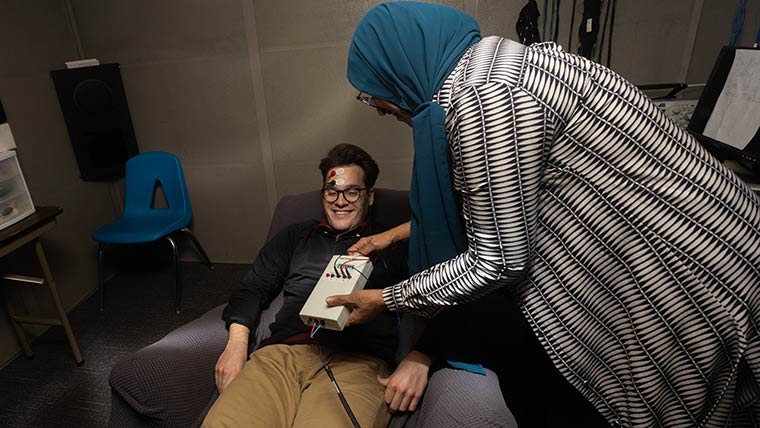
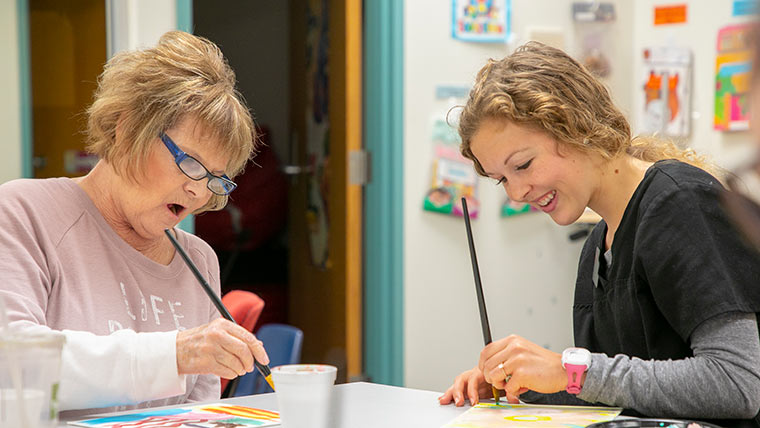
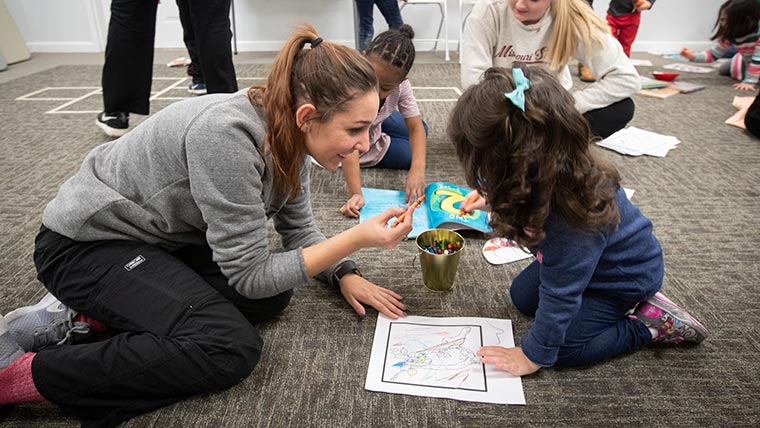
Careers and outcomes
Unlock a new world of social interactions for your patients.
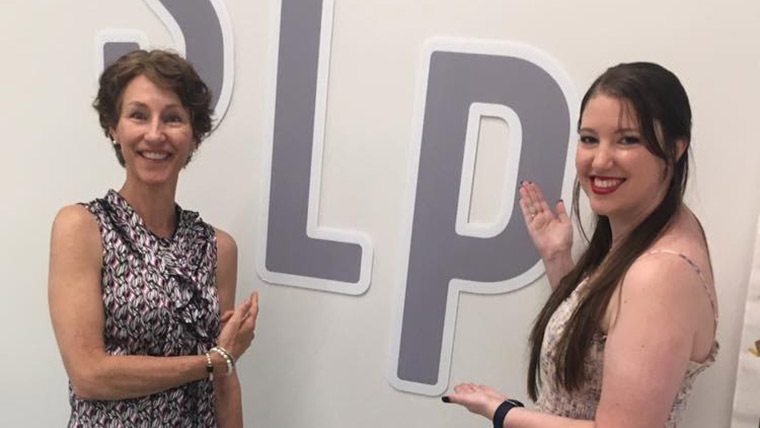
Student club
Connect with other Bears who share your interests in speech-language and audiology.
